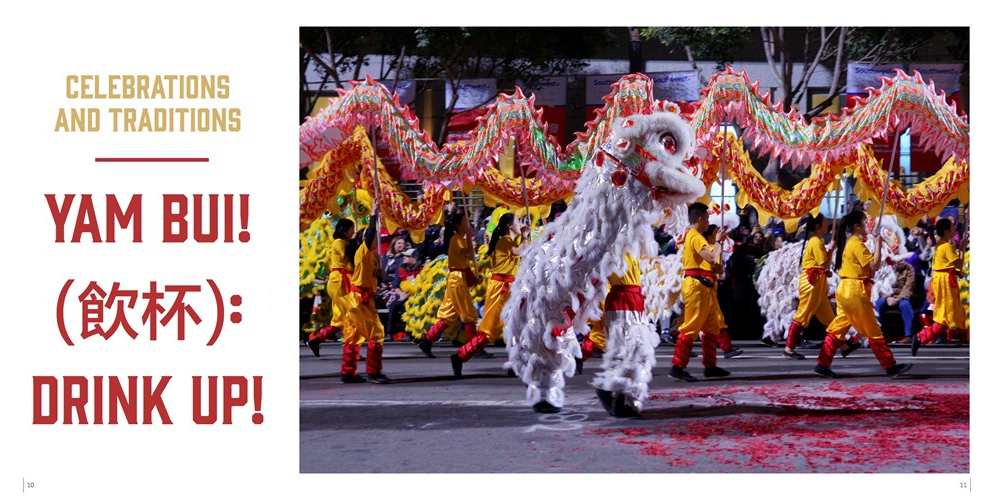- Home
- San Francisco's Chinatown
San Francisco's Chinatown
$40.00 USD
/
per
In stock!
FREE SHIPPING
Spend to FREE SHIPPING
Product description
“...a marvelous book and a great contribution to Chinatown, the Chinese-American community, and to the world community. I am amazed at your photography, your appreciation of color, your mastery of framing, your adventurousness in perspectives...it all worked out beautifully.”—Ben Fong-Torres
“Impressively pairing striking imagery with an informative historical narrative, the book transports readers right into the heart of Chinatown’s thriving streets, festivals, local flavor, and cultural intensity. A vividly realized tribute to one of Northern California’s most revered cultural neighborhoods.”—Kirkus Reviews
“The unique imprints of different eras are presented as if readers travel through the corridor of time and read "of the many things from ancient to modern". Evans shoots in the context of the times. Leong introduces the history, tourism, daily life, and celebrations of the Chinatown community through clear text descriptions.”—World Journal, the nation’s #1 Chinese newspaper
“As far as I am concerned, this is the best book on Chinatown. The book was so well written and all things Chinatown were told with such clarity! And the photographs were stunning! Our neighborhood can be so much prouder of its history and heritage, thanks to you two!! I can't thank you enough for creating such an important book for our community. It will be enjoyed for years to come!!”—Betty Louie, Advisor Chinatown Merchants Association
“You have given us a synopsis of history, cultural, political, personal—it's pretty amazing. And while delivering so much content, the book yet evinces a great spirit of the place as well. I love photo books with text—it's a great combination, two modalities of perception that together make more than the sum of their styles.”—Mary Ellen Hannibal, author of Citizen Scientist
America’s oldest Chinatown comes alive in stunning photos of its people and places
“Impressively pairing striking imagery with an informative historical narrative, the book transports readers right into the heart of Chinatown’s thriving streets, festivals, local flavor, and cultural intensity. A vividly realized tribute to one of Northern California’s most revered cultural neighborhoods.”—Kirkus Reviews
“The unique imprints of different eras are presented as if readers travel through the corridor of time and read "of the many things from ancient to modern". Evans shoots in the context of the times. Leong introduces the history, tourism, daily life, and celebrations of the Chinatown community through clear text descriptions.”—World Journal, the nation’s #1 Chinese newspaper
“As far as I am concerned, this is the best book on Chinatown. The book was so well written and all things Chinatown were told with such clarity! And the photographs were stunning! Our neighborhood can be so much prouder of its history and heritage, thanks to you two!! I can't thank you enough for creating such an important book for our community. It will be enjoyed for years to come!!”—Betty Louie, Advisor Chinatown Merchants Association
“You have given us a synopsis of history, cultural, political, personal—it's pretty amazing. And while delivering so much content, the book yet evinces a great spirit of the place as well. I love photo books with text—it's a great combination, two modalities of perception that together make more than the sum of their styles.”—Mary Ellen Hannibal, author of Citizen Scientist
America’s oldest Chinatown comes alive in stunning photos of its people and places
* Hardcover
Following his award-winning book on San Francisco’s Mission District, Dick Evans turns his attention to Chinatown, the fifth of a square mile that attracts more tourists than the Golden Gate Bridge but where the median household income is a quarter of the citywide average. From delicious dim sum to wok-filled shops, from iconic red lanterns to elaborate parade floats, from inside single-room occupancy apartments to outdoor games of Chinese chess in Portsmouth Square, Evans captures a place filled with diverse residents and a unique mélange of American and Chinese architecture, cuisine, and culture. Vibrant images are interspersed with sidebars highlighting particular people and institutions, deepening viewers’ immersion into this community. Kathy Chin Leong’s lucid text introduces readers to the history of the neighborhood, as well as to themes of tourism, daily life, and celebrations. At the heart of the book is a tight-knit community and a thriving neighborhood, which welcomes immigrants with supportive institutions and entices tourists to experience a wide array of Chinese traditions. Evans’s photos highlight a place undergoing visible progress but, unlike other San Francisco neighborhoods that are gentrifying, maintaining its unique character and authenticity.


Add to cart



